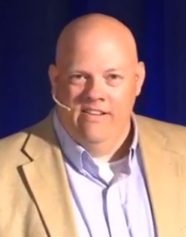A MESSAGE FROM THE REV. J.C. AUSTIN:
RESPONDING TOGETHER
As we have resumed the option of worshipping in-person, there have been a few changes to the worship services from the online-only version that you may have noticed.
Probably the most obvious changes are the resumption of speaking in unison in different places in the Traditional Service. Contemporary worship largely avoids unison prayers and responses, so there was no necessary change there.
But traditional Reformed worship has a number of  places for unison responses because of our theological conviction that worship is the work of the people of the congregation; Ministers of Word and Sacrament in the Reformed tradition lead the congregation in worship rather than worshipping on their behalf.
places for unison responses because of our theological conviction that worship is the work of the people of the congregation; Ministers of Word and Sacrament in the Reformed tradition lead the congregation in worship rather than worshipping on their behalf.
This is why we do not ordain priests; a priest’s job is to mediate between God and the people. We, however, believe in “the priesthood of all believers” who are ordained to ministry through our baptisms, which means (among other things) that we are all mediating the presence of God to and for one another.
That is why we have a communal Prayer of Confession, for example: we are simultaneously confessing to God and hearing one another’s confession together, rather than going to an ordained priest in private to confess one-to-one.
We kept the Prayer of Confession in both services during the quarantine, of course, but we eliminated most of the other unison responses in traditional worship when we were online-only for purely practical reasons: in general, responsive liturgy doesn’t work very well when there is no congregation whatsoever in the room where the service is taking place! Now that we are back in person, however, we have returned to responsive Calls to Worship, to the opening of the Communion liturgy, and to the Affirmation of Faith.
It’s the last of those that I want to hold up for a moment since we are returning to that practice in traditional worship. The Affirmation of Faith is particularly important in the Reformed tradition because of our emphasis on theology as a means of pursuing the knowledge and understanding of God and our faith in God. By making that affirmation in unison, it allows the congregation as a whole to respond to hearing God’s Word in the reading and preaching of the Scriptures; that’s why it always follows closely on the sermon.
The specific affirmations we use, then, are usually from the Book of Confessions, the theological statements of various church councils throughout the ages that together make up the official theological standards of the Presbyterian Church (USA). So, different selections from different confessions (which is a traditional term for theological statements made by church councils) are used that speak to the themes of the day’s Scripture lesson and sermon.
However, there are two general exceptions to that related to the celebration of sacraments. First, when we are celebrating Communion, we generally use the Nicene Creed as our Affirmation of Faith. That is because the Nicene Creed is the most universally accepted theological statement in worldwide Christianity, so using it with Communion is a way of holding up the church’s essential unity, especially when (ironically) the practice and theology of Communion is one of the most common points of disagreement in the Christian Church.
Second, when we are celebrating a Baptism, we always use the Apostles’ Creed. That document is very common in Western Christianity but not Eastern Orthodoxy, which is why the Nicene Creed is preferred for Communion. But the Apostles’ Creed is also specifically written for Baptism: in fact, it was originally responsive!
Rather than simply reciting it, a candidate for Baptism would say it responsively to answer questions. The officiant would say, “Do you believe in God?” and the candidate would respond, “I believe in God the Father Almighty, maker of heaven and earth.” Questions about Jesus Christ and the Holy Spirit would follow, and the rest of the Creed would be used to respond.
So, if you are in the traditional worship service, take a moment to consider what Affirmation is being used in that service and why, so that your own worship experience may be more meaningful and our common worship can be strengthened by both faith and understanding.
Grace and Peace,
J.C.
